Georgetown University in Qatar Pioneers NATO Crisis Simulation in Global South
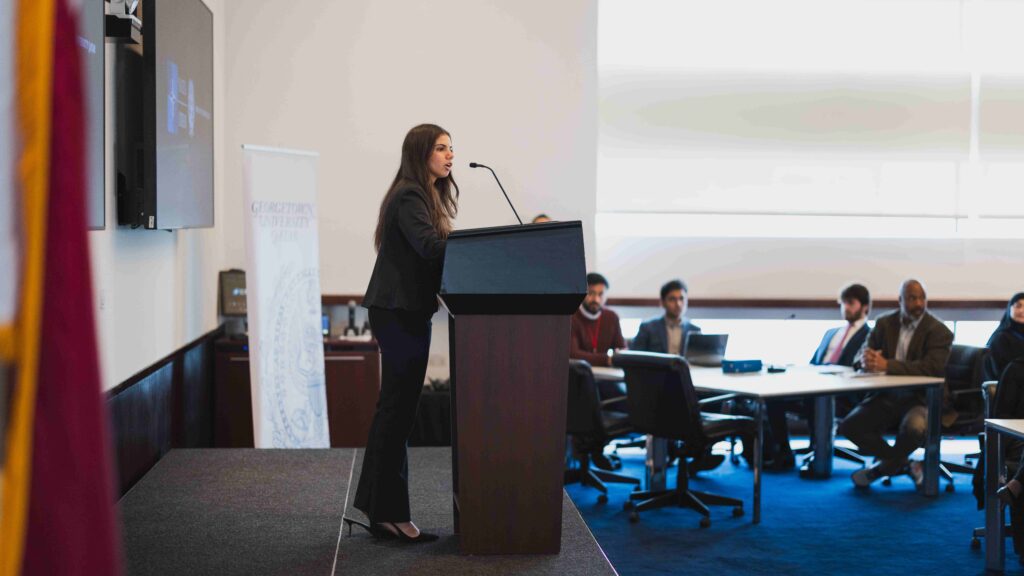
Georgetown University in Qatar (GU-Q) has made history by hosting the first-ever North Atlantic Treaty Organization (NATO) Allied Command Transformation (ACT) university crisis simulation in the Global South. This innovative event, led by student Ranneme Walid Abu-Hajar (GU-Q’27), positioned GU-Q as a trailblazer in global security education. By bringing NATO officials, security experts, and students together, the simulation provided a hands-on diplomatic experience that emphasized international cooperation in crisis response.
A Vision Turned Reality
Ranneme conceived the initiative after attending the 2024 NATO Public Forum in Washington, DC, as part of her Rangel Summer Program, where she engaged with global leaders and youth from NATO’s member states. Recognizing the absence of representation from NATO’s partner nations, she saw an opportunity to bring NATO to GU-Q, a university with a highly diverse student body, many of whom hail from NATO partner nations.
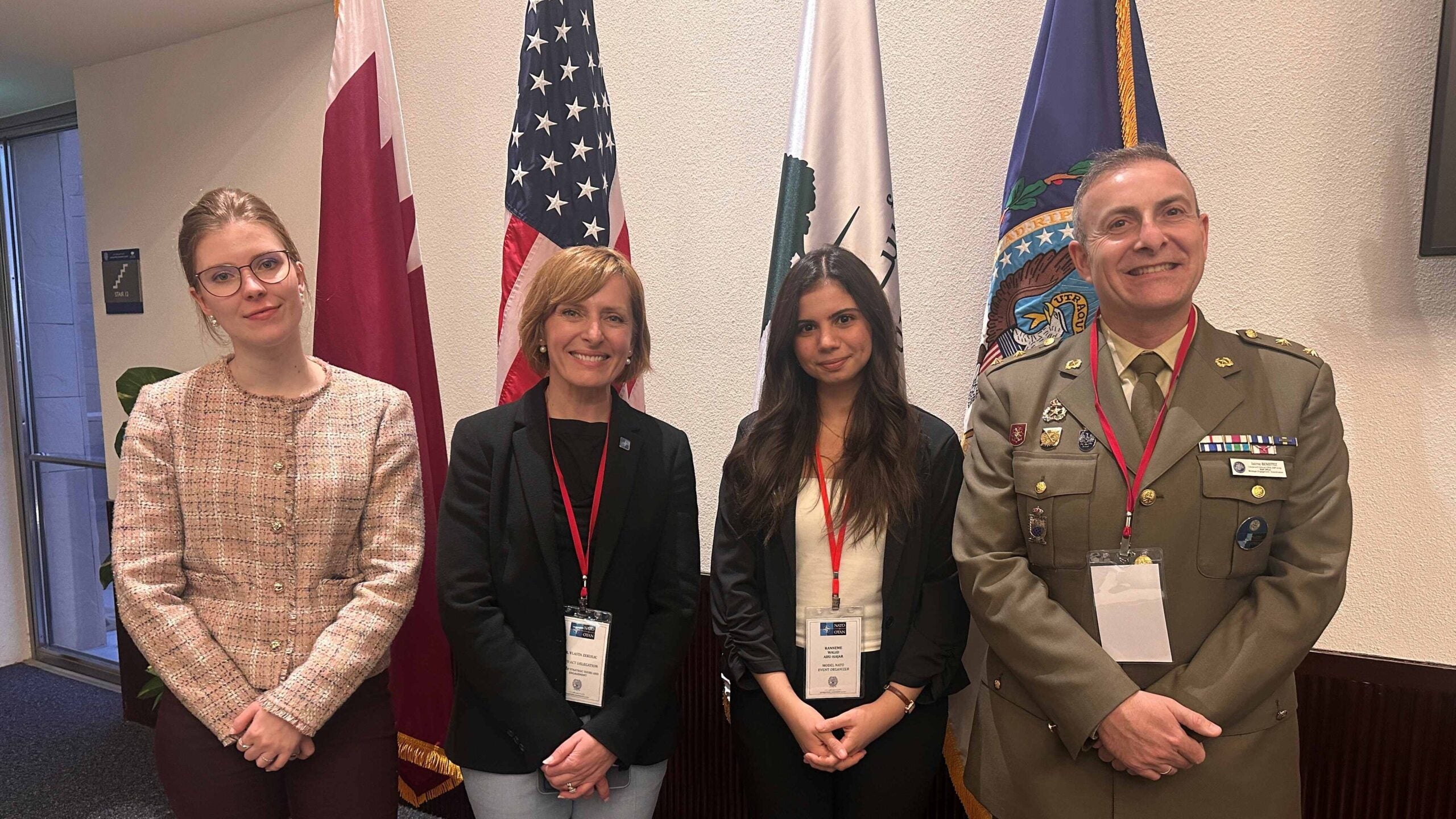
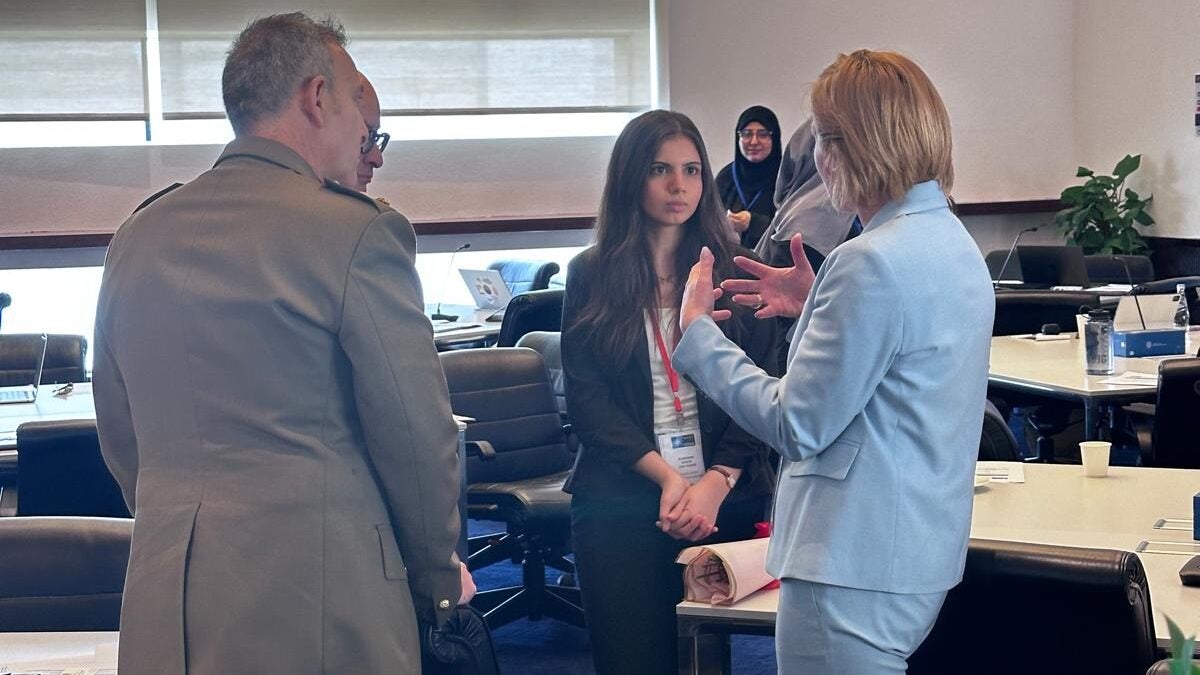
“When I pitched the idea in August 2024, both NATO and GU-Q were enthusiastic about the prospect,” said Ranneme. “Thanks to the support of key faculty and staff, including Andrew Henley, Dr. John Wright, and Jibin Koshy, I was able to turn my vision into a reality.”
A Hands-On Diplomatic Experience
The simulation allowed students to engage directly with NATO representatives, apply diplomatic theories from their coursework, and develop negotiation and decision-making skills. Participants assumed the roles of NATO ambassadors, navigating a high-stakes crisis while drafting resolutions under NATO experts’ guidance.
Prominent NATO officials facilitated the simulation, including Dr. Vlasta Zekulich, Branch Head, Strategic Issues and Engagement, NATO ACT; Nora-Elise Beck, Head, NATO Office at the NATO-ICI Regional Centre; Luisa Fruetel, Staff Officer, Strategic Engagement and Academic and Youth Outreach; and LTC Jaime Beneitez, Staff Officer, Strategic Engagement and Coordination.
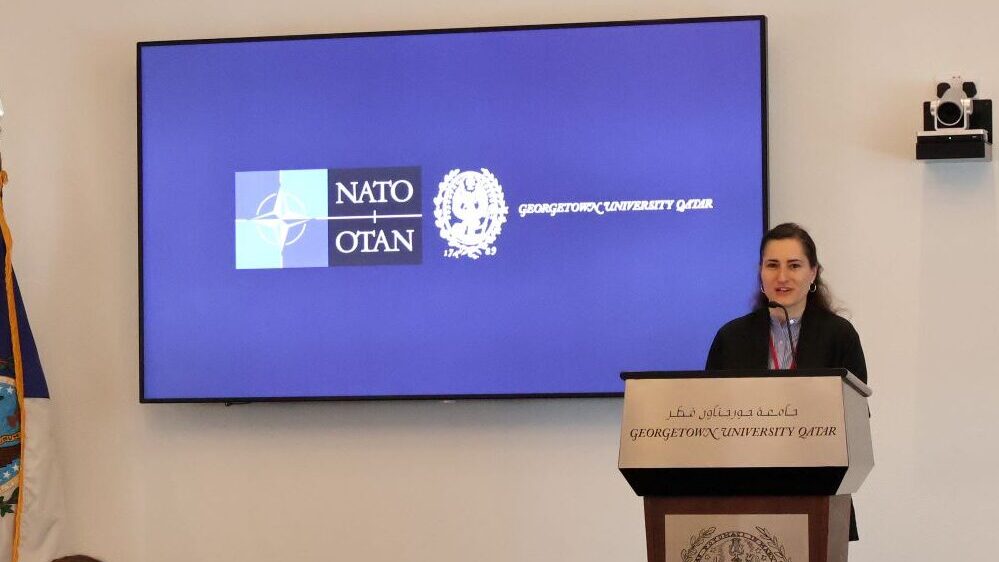
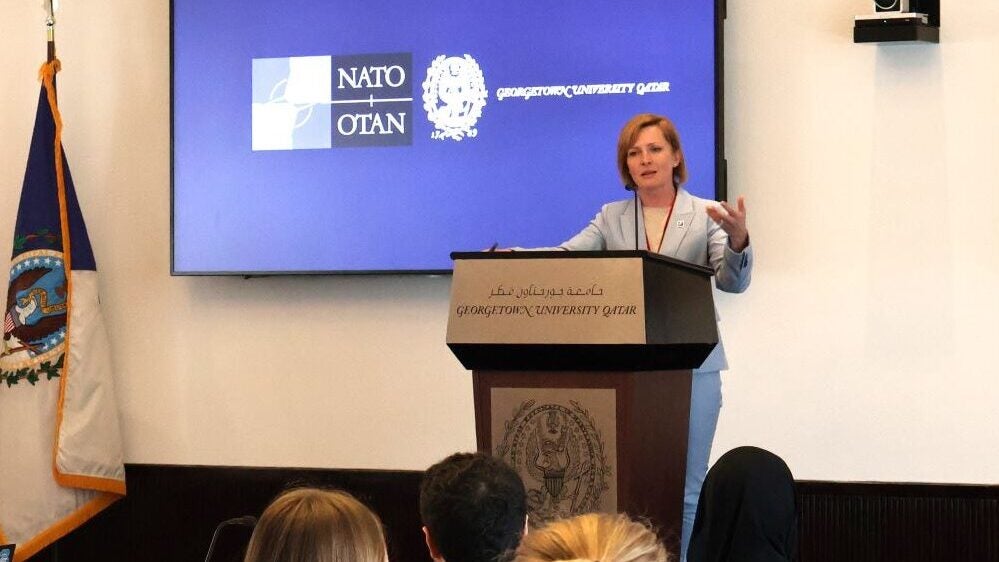
Dr. Zekulich praised the students’ performance, stating, “brilliant young students, very active, eloquent, and sharp, extremely prepared, ready to communicate and negotiate. The students’ abilities to work together effectively were very impressive.”
Student Reflections
The highly diverse student body at GU-Q was a pleasant change for Fruetel, who noted: “When we usually conduct these simulations in the U.S. and EU, we tend to have a group of students from a very similar background, but here, we are truly enjoying the perspectives and diversity of the multinational student body at GU-Q.”
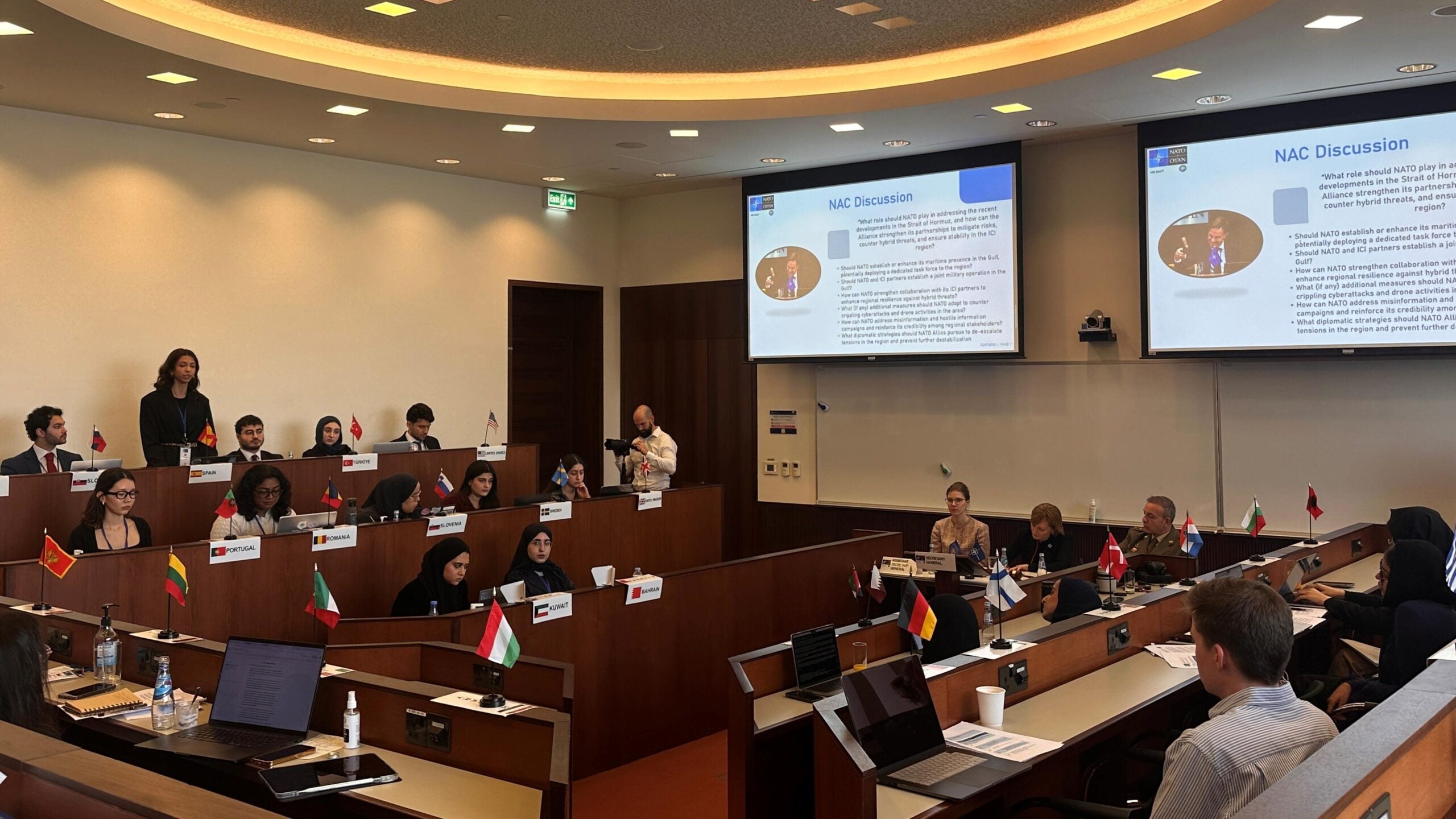
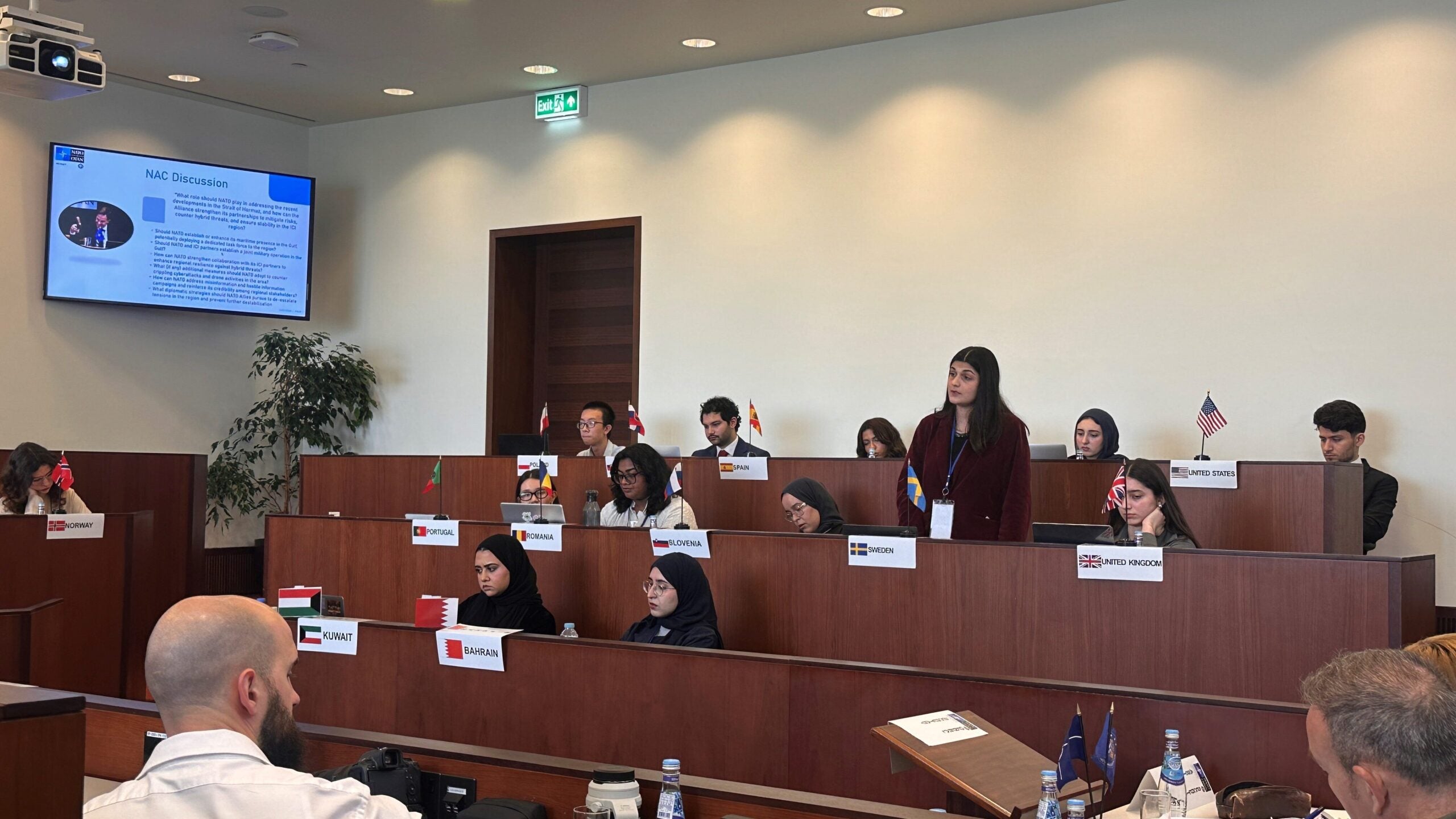
The students enthusiastically shared how the exercise increased their knowledge of international diplomacy. For International Politics major Emilia Pacheco De Larrea (GU-Q ‘25), it offered a rare opportunity to engage with NATO. “As a citizen of a non-member state, this simulation provided insights into security challenges that could benefit my home country, Ecuador, and the broader Latin American region,” she said. Syrian student Yasser Sakbani (SFS ‘26), who is studying International Economics, reflected: “This event strengthened my understanding of how trade, energy security, and geopolitical strategy influence global stability and economic policy.”
A Lasting Impact on Diplomacy and Security Studies
LTC Beneitez highlighted the insights NATO gained from the first exercise of its kind in the region, saying: “It has been an incredible experience, we learned a lot from the youth and especially from this university, a lot of different approaches and incredible thinking skills, I am really impressed.”
Reflecting on the success of the event, Ranneme emphasized the importance of creating opportunities for students to engage in security and defense diplomacy.
“My hope is that this event inspires more hands-on diplomatic initiatives at GU-Q and helps build bridges between critical security organizations and the next generation of global leaders,” she said. “This simulation demonstrates that with passion, dedication, and institutional support, students can bring world-class opportunities to their campus.”
Now celebrating its 20th Anniversary, GU-Q continues to build a name for itself as a convenor of critical global dialogue in the region which elevates voices from the Global South. By hosting this pioneering NATO crisis simulation, GU-Q has not only amplified the voices of NATO’s partner nations but has also reinforced its reputation as a global leader in experiential learning and international diplomacy. The success of the event sets the stage for future collaborations between NATO and academic institutions outside traditional Western contexts.